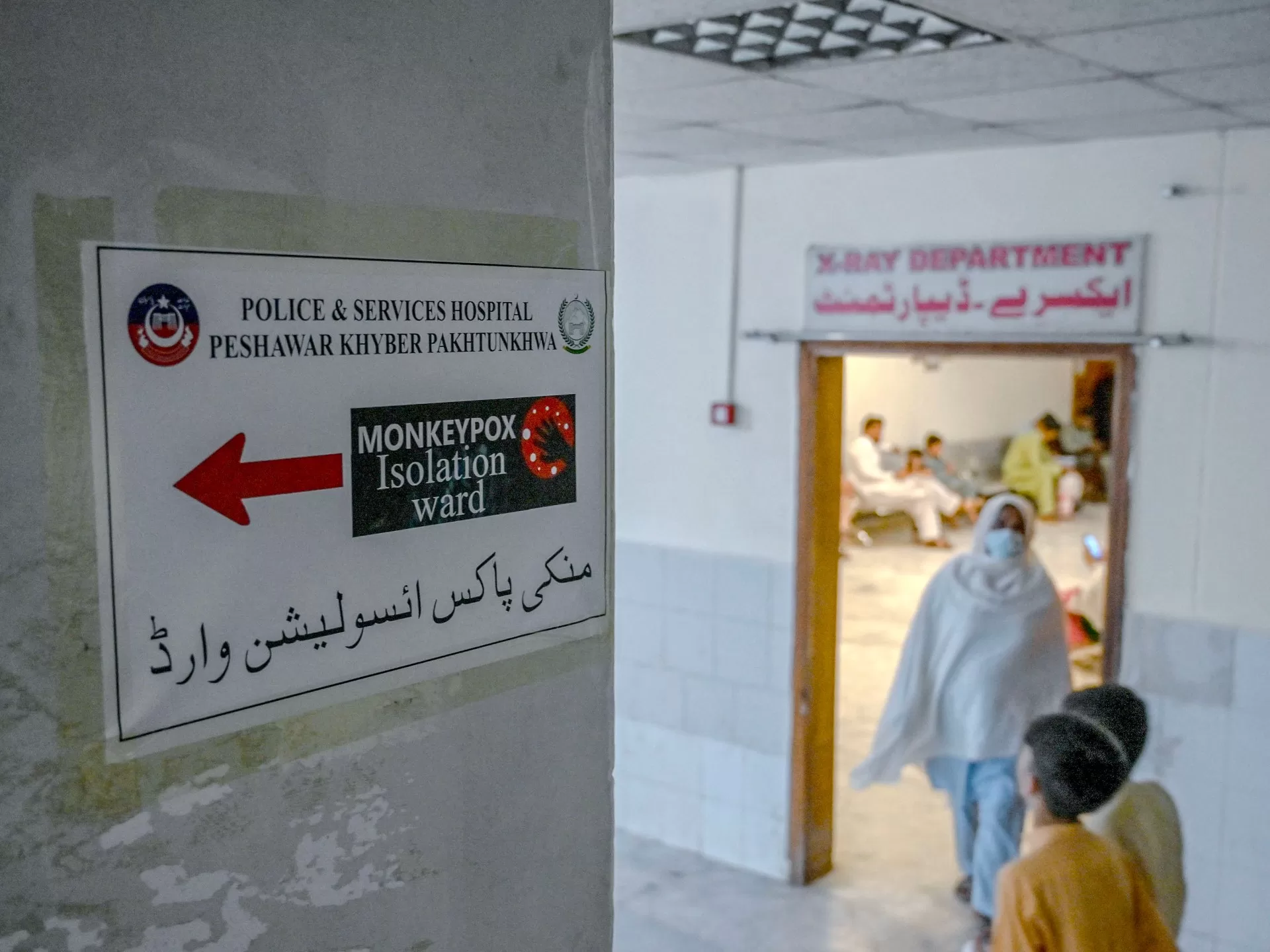The mpox virus is spreading internationally, and more countries, some very far from the initial location of the outbreak in East Africa, have confirmed cases of a new and potentially deadlier strain in the past week.
Where has mpox spread?
So far, four countries – Sweden, Thailand, Philippines and Pakistan – have reported mpox cases outside the African continent. Fourteen countries in Africa have reported cases.
The World Health Organization (WHO) stated last week that the virus has become a “public health emergency of international concern”. While the WHO has been at pains to emphasise that mpox is “not the new COVID“, this is the second emergency alert relating to mpox from the global health agency in two years.
The current outbreak has been triggered by Clade 1, believed to be a more serious variant of the mpox virus than has appeared before and which can spread through skin-to-skin contact.
Mpox has been spreading in African countries since 2022 and was originally traced to the Democratic Republic of the Congo (DRC). In 2023, a new strain of the Clade 1 variant was discovered in the country – known as Clade 1b. African countries are reporting both Clade 1 and Clade 1b strains.
Simultaneously, a different outbreak of the virus’s earlier Clade 2 variant is also spreading although at much lower levels.
The Clade 2 strain caused a multicountry mpox outbreak in 2022, which spread mainly via sexual contact. Cases of that strain had been reported in more than 100 countries by last month.
Clade 2 is believed to cause milder infections. The fatality rate is 0.2 percent compared with 3.9 percent for Clade 1. The WHO officially declared the outbreak over in May 2023, but cases are still being recorded.
Here’s where mpox disease has spread from January to August this year:
Africa
According to data from the Africa Centres for Disease Control and Prevention (Africa CDC) and the governments of Kenya, Mozambique, Uganda and the Ivory Coast, the Clade 1 variant of mpox has been detected in the following countries this year:
- Burundi (eight cases, zero deaths)
- Cameroon (35, two)
- Central African Republic (213, zero)
- Ivory Coast (28, one)
- Republic of Congo (146, one)
- DRC (13,791, 450)
- Ghana (four, zero)
- Liberia (five, zero)
- Nigeria (24, zero)
- Rwanda (two, zero)
- South Africa (22, three)
- Uganda (two, zero)
- Kenya (one, zero)
- Mozambique (one, zero)
The DRC is experiencing the biggest outbreak of the disease ever recorded with thousands of people infected as of August 21. The government declared an epidemic in December 2022.
Nearly all reported cases – 96 percent – across Africa are in the DRC, where children younger than 15 account for 60 percent of the cases, Africa CDC said.
The new Clade 1b strain is also rapidly spreading. It has been detected in least three countries neighbouring the DRC this year: Kenya, Rwanda and Uganda. These countries had not previously reported any cases since the outbreak began in 2022.
So far, 541 deaths have been recorded in total from mpox, with 535 in the DRC (97 percent). The Africa CDC does not classify deaths according to strain. Most deaths have been children.
In the Ivory Coast, authorities said, the outbreak is linked to the 2022 Clade 2 variant.
Asia
The Philippines, Thailand and Pakistan have all reported new mpox cases this month.
In Thailand, authorities confirmed a new case of Clade 1b on Thursday, in Asia’s first case of the new strain.
The individual, identified as a 66-year-old European male, reportedly returned from an unnamed African country currently experiencing a “large” outbreak of the Clade 1 variant before reporting to health authorities. He reportedly does not have serious symptoms and was believed to have transited through a Middle Eastern country before arriving in Thailand.
In the Philippines, authorities said the milder Clade 2 variant has been confirmed as the cause of the most recent case there and it has likely been spreading quietly for a while. The patient is a 33-year-old Filipino male with no travel history. It is the country’s 10th confirmed case since 2022.
Pakistani authorities said the first patient reported there this year is a male and he was infected with the Clade 2 variant. However, authorities said last week that they could not locate the infected patient. He is believed to have travelled to another province before the test results were released. Authorities said they are trying to trace him.
Europe
- Sweden (one case, zero deaths)
Only one country in Europe – Sweden – has reported an mpox case. The infection was reported on August 15 and has been confirmed to be the more serious Clade 1 variant.
It is “highly likely” that the European region will record more cases of the Clade 1 variant because of frequent air travel between Europe and Africa, according to the European Centre for Disease Prevention and Control.
However, sustained transmission might be low in Europe if cases are quickly diagnosed and if testing, surveillance and contact tracing are used, the agency said. The European Union has ruled out closing its borders to hard-hit countries.
Americas, Middle East, Oceania and Antarctica
No countries in North or South America have new cases of Clade 1 mpox so far.
However, countries in the Americas should be “alert” to possible Clade 1 and Clade 2 cases, the Pan American Health Organization said in a statement on August 9.
The region reported more than 62,000 cases of the Clade 2 virus from 2022 to July 2024, including 141 deaths.
There are no confirmed cases of the Clade 1 mpox virus in Oceania or the Middle East.
